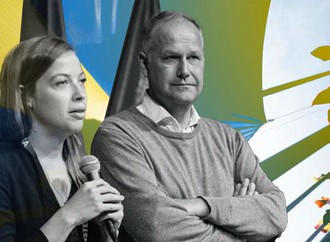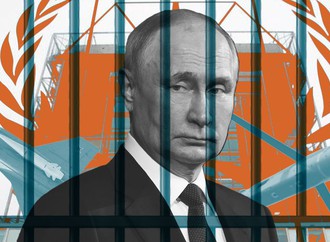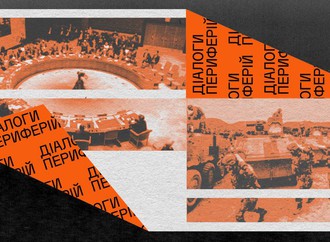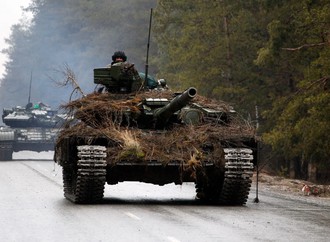Initially, Left Alliance (Vasemmistoliitto/Vänsterförbundet) was fiercely against Finland joining NATO to the point of making it a condition of your participation in the government. What was the reasoning behind V’s security policy back then?
Not only was our party Vasemmistoliitto against Finland joining NATO, but so was also the overwhelming majority of both Finnish citizens and Finnish politicians, including even our right-wing conservative president. Four out of five Finns would not have wanted Finland to join NATO prior to the 2022 Russian invasion of Ukraine.
Our view was that military non-alignment was the most stable solution for Finland. It gave Finland a bigger role in promoting mediation in international arenas. Membership in NATO was a big change in Finland’s foreign and security policy line, which had previously remained rather constant within this area of politics. We’d valued our own highly effective military and our independent defense policy. We did not see a military alliance with countries like the USA, Turkey, Poland, and Hungary to be a reliable securer of human rights and democracy in the world. We saw our role as an independent country outside of military alliances to be beneficial in negotiating for peace in the world.
Much of our criticism towards NATO remains similar in essence today, even though now the situation has changed drastically, — and so did our position towards Finland’s membership in NATO.
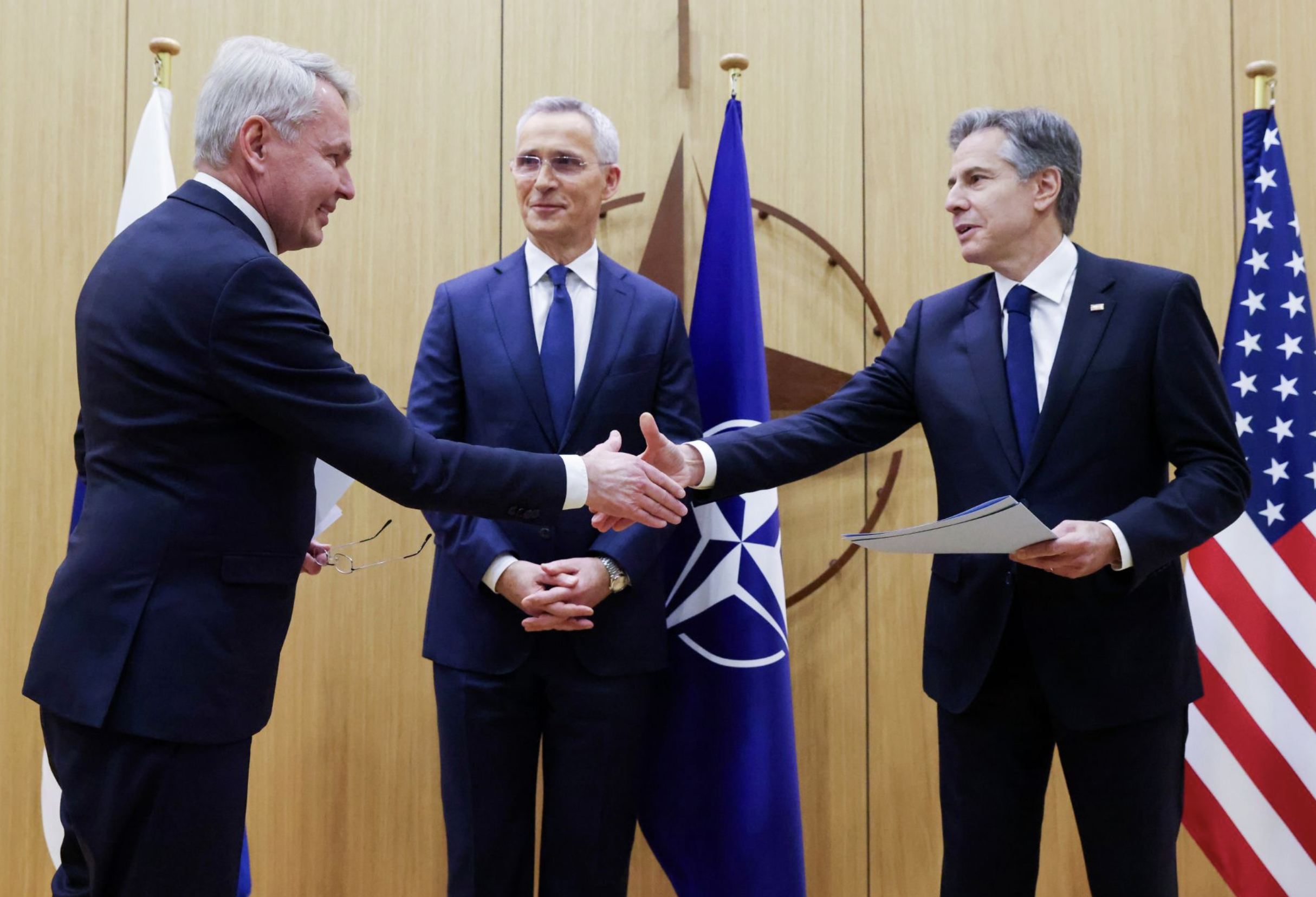
Finnish Foreign Minister Pekka Haavisto (left) and US Secretary of State Anthony Blinken (right) after handing over the document on Finland's accession to NATO, Brussels, April 4. Photo: Johanna Geron / AP / Scanpix / LETA
The media frequently relates NATO scepticism to the alleged ties with or sympathy towards Russia. What was your record on that? Have there ever been any illusions within your party?
There have never been sympathies towards the Russian leadership or their military incursions and ambitions in our party. Ever since Putin took power in Russia, our party has been very vocal in criticizing his reign and policies both inside Russia and when waging war with Russia's neighbors.
There has, however, always been a persistent urge within the media and our political opponents to accuse our party and politicians of Putinism. No matter how vocally and consistently we voice our opposition to Russia — the right wing automatically labels anyone they consider “unpatriotic” as “pro-Russian”. This is something that is not unique to Finland but is perhaps amplified by our history and proximity to Russia.
Our opposition to NATO was never based on the idea that Russia needs to be protected from the western military alliance, or that NATO has somehow wronged Russia by gaining new members in the Baltic countries for instance. We’ve opposed both NATO and Russia based on their respective track records and have refrained from pledging allegiance to any geopolitical block.
Then the full-scale war in Ukraine begins, and the party makes a complete turn-around on the NATO ascension. This is at the time when the Russian invasion is seen by many on the left as NATO-provoked. How did the discussion go, and what did it end up with in Vänsterförbundet? Something that is often cited is a shift in public opinion, including among the party members and supporters. Why do you think this happened?
The discussion regarding Finnish membership in NATO escalated very quickly after the February 2022 invasion. The Finnish public opinion changed completely from almost everyone opposing the membership to almost everyone being in its favor[1]. Pretty much everyone was frightened and genuinely feared that Finland could very well be the next target of Russian aggression. This was reflected in our membership and voters as well. Where before the party and its supporters were all very much of one mind, now we have different, and justified, views... Roughly one half still opposed Finland’s membership in military alliances, while the other half, slightly larger, was in favor of Finland joining NATO.
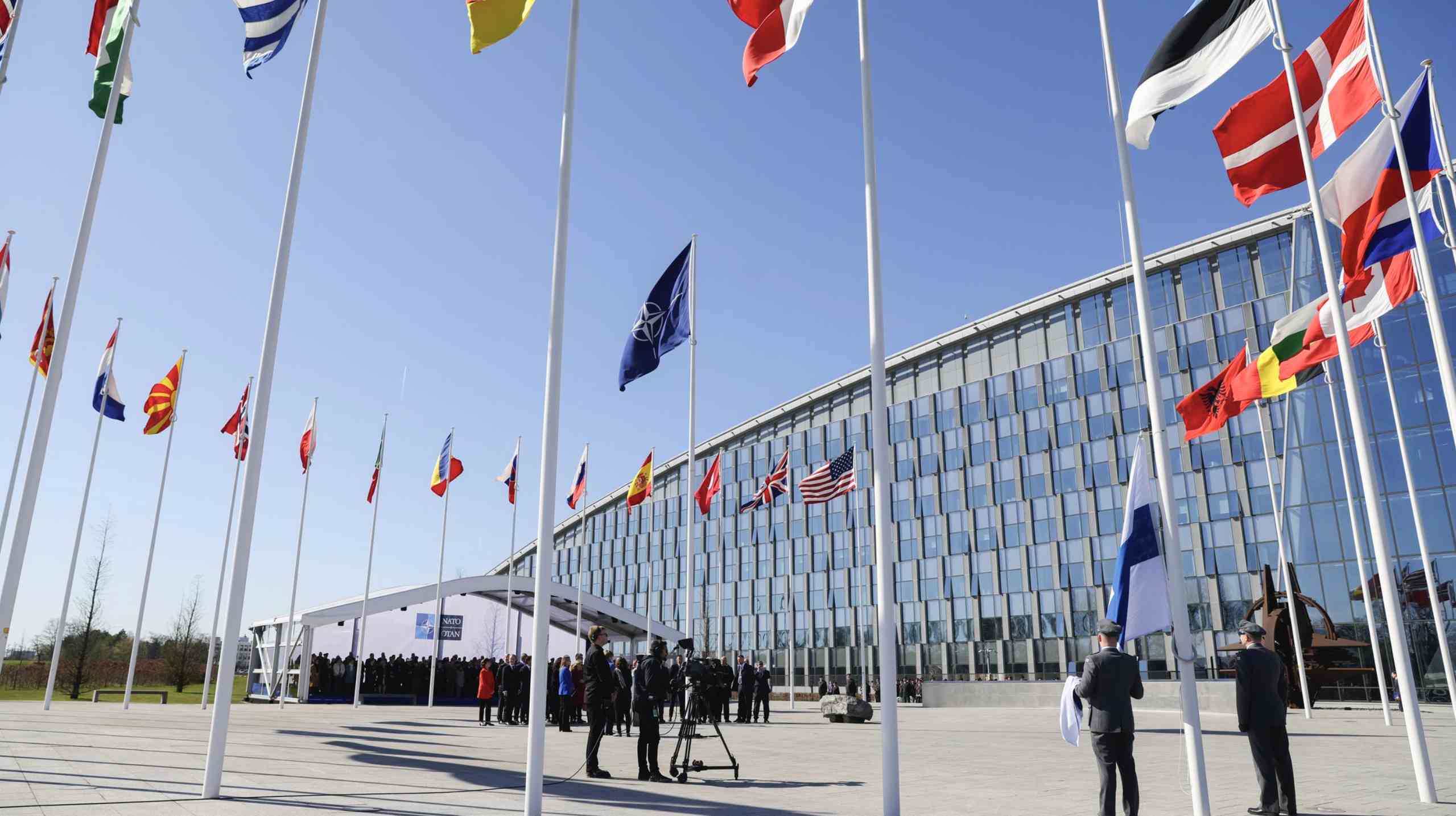
Military personnel prepares to raise the flag of Finland during a ceremony at NATO headquarters in Brussels, April 4, 2023. Photo: Associated Press
But why? The consensus among the party members seems to be that we had basically failed to provide any credible alternatives to NATO. We’d always emphasized that Finland has an independently strong military, something Russia would not dare to challenge – and had no reason to since we were outside of NATO.
After the 2022 invasion, this was not perceived as an adequate defense policy. In retrospect, it truly was not. We should have worked harder in the years leading up to the war in planning and proposing a Nordic-European alternative, something to counterbalance the threat from Russia that would not have to rely on countries like the USA and Turkey. But we had no such well-prepared alternative to offer, so our members and supporters turned to something that was already there, concrete and widely discussed.
Nonetheless, the deliberation took a while, pluralism of opinions was constantly underlined, the parliamentary group voted in disarray, and the party leader did not make her position known for several months. Why was it like this?
There has never been a top-down enforced policy regarding NATO in our party. In our programs, we’ve naturally spoken against NATO, but the discussion within the party had been minimal, at least in the years leading up to 2022. Everyone in Vasemmistoliitto had quite naturally been in total opposition towards the military alliance and especially Finland’s potential membership in it, so there had really been no need to even consider what we would do as a party if the opinion would start to divide.
Now that opinion started to divide, we very early on decided not to enforce any stance on our politicians or members. Everyone had the freedom to form their own opinion on the matter, as they eventually did. The vote in the parliament, with most voting in favor of joining and a large minority voting against it, is very reflective of the opinion in our membership.
As far as the party leader is concerned, she has stated that she wanted to leave room for the party membership to form their opinion without forcing one on them or seeming to do so. This I think was very important in keeping the party together, despite the differences of opinion. In fact, there never has been any threat of a real split in the party due to NATO. Even now we have politicians who voted in favor of and also those who voted against the NATO ascension in our party's leadership.
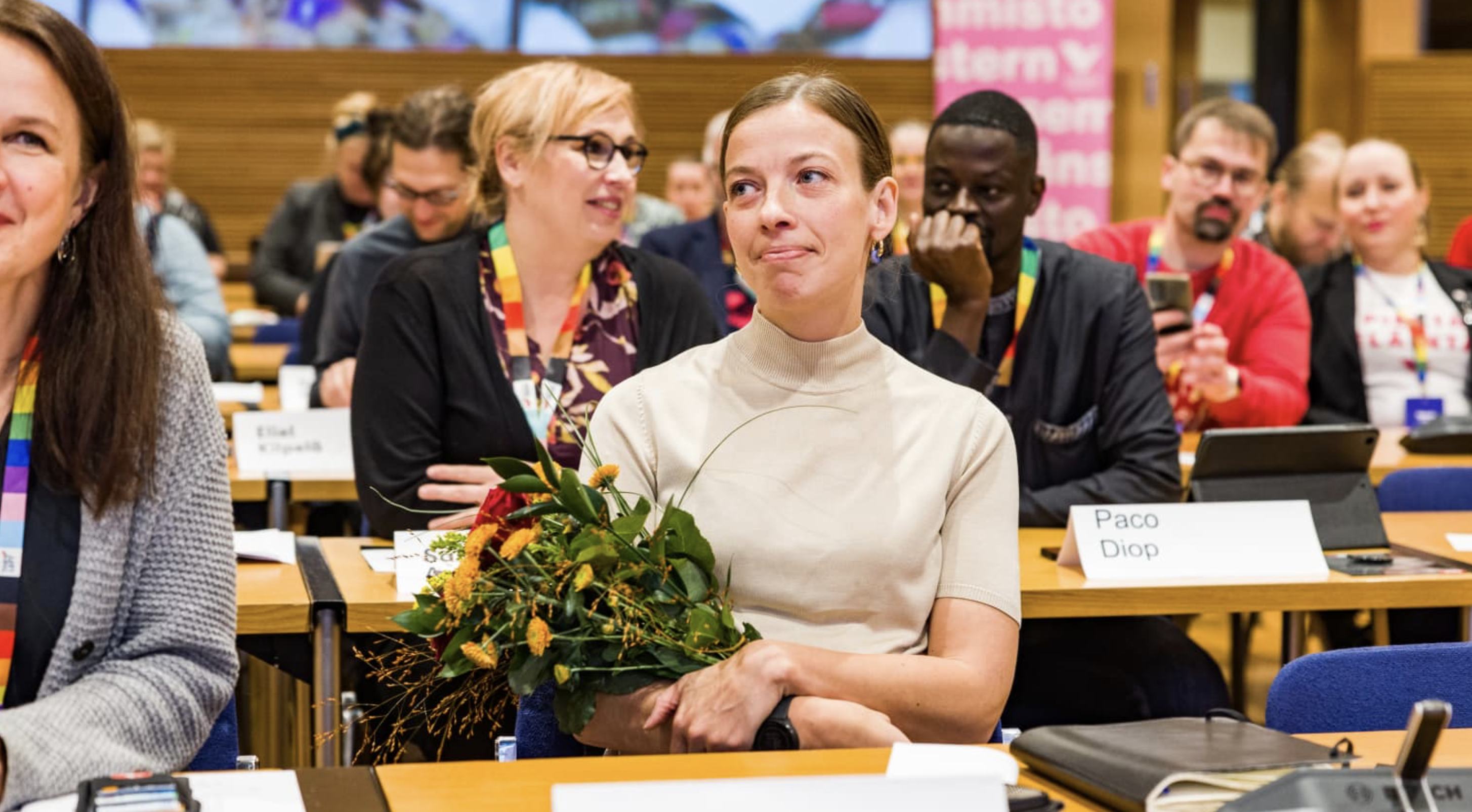
Lee Andersson, leader of the Left Alliance party. Photo: Esa Syväkuru / Yle
What is precisely the party’s position towards NATO now? Do you ignore it for now, embrace out of necessity as a lesser evil, or accept only with certain reservations? What about other connected collaborations, such as the Defense Cooperation Agreement (DCA) with the US?
The Left Alliance sees that Finland should emphasize that Finland’s membership in NATO is defensive in nature and that we do not want nuclear weapons, or permanent NATO bases or troops in Finland.
As regards to the Defense Cooperation Agreement between Finland and the United States, we have not yet taken a final position. We are still waiting for the government bill on the agreement.
The Left Alliance hopes that the DCA agreement will be carefully and thoroughly discussed in Parliament, as this is a significant change in foreign and security policy. We also have concerns about the legal responsibility of the soldiers, as we want to ensure no Finnish victim is compelled to face trial in a U.S. military court. Also, the question about nuclear weapons on Finnish soil is important to us. We do not want nuclear weapons here.
One of the constant debates, including on security matters, is whether the left should be focused on defending book principles no matter what or pragmatically assess every situation and make the best out of it for the common good. What is your take on that?
My opinion is that Leftist politics cannot achieve what we aim to achieve without socialist theory and an understanding of our world that is based on the material reality of our society. This said, theories are never something you can apply to the real world as such. For instance, we could have chosen to die on the hill opposing the Finnish NATO membership out of principle and totally disregard the shifting opinion of the Finnish people, our party members and our voters. Would this have brought us closer to peace, a democratic socialist society, and a better world? I think we will have to continue to balance ourselves between book principles and the real world.
Can we say then that the public opinion, not security considerations, was the deciding factor?
We could say that the lack of any credible competing security alternatives for NATO was the reason for change in the public opinion, our supporters included. And realizing this was the deciding factor.
Has the change in your party's position on NATO affected your relationship with the radical left in other countries, given that the left is largely anti-NATO?
Not really as far as I know, judging from discussions with international comrades, largely other European leftists. Most of them are also members of leftist parties in other NATO countries. Now we are also a leftist party in a NATO country. Most of the leftist parties don’t campaign for withdrawal from NATO as their main objective, even though that would be a part of their core manifesto.
It’s also important to stress that we are not explicitly pro-NATO either. We are still just as critical of Western imperialism as before and have common ground regarding these issues with our sister parties. Especially with those who also recognize and are vocal in opposing Russian imperialism as well.
What could be or maybe is a viable security arrangement other than NATO for our part of the world?
That is exactly the question that we should have been able to answer in a credible way well before February 2022. It could be something that relies more on Europe and the other Nordic countries.
The alternative we had prior to 2022 was a strong and reliable national defense based on universal conscription. This was deemed to be too little by the public, but it was basically all we had.
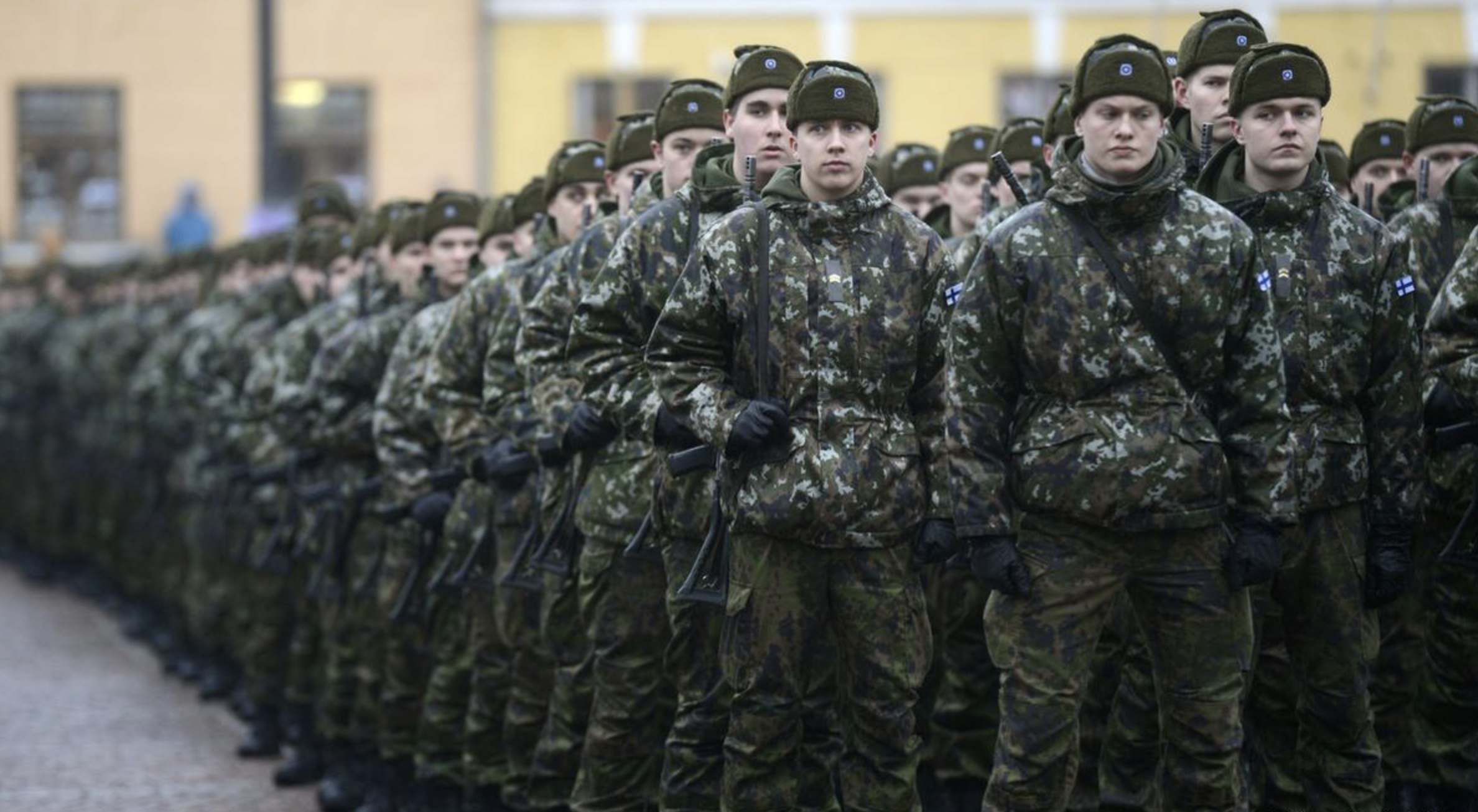
Armed forces of Finland. Photo: picture-alliance / dpa / V. Moilanen
I think we still need to strive to answer this question of alternatives to NATO. A military alliance led by western countries contributing to war crimes and committing atrocities of their own cannot be our only salvation from another imperialist-expansionist regime in the east.
Could the reliance on national defense be ever feasible for smaller countries, at the very least economically? Or if we leave the US behind, is further development of the EU mutual defense an alternative you could imagine or rather shifting to regional collaborations like the idea of the Scandinavian defense union?
The short history of this discussion in our party is that before February 2022 there was widely a consensus that best for Finland is to remain militarily non-aligned and to uphold a strong independent military.
Then in the weeks and months after February 2022 it became clear that this is no longer a viable position in the eyes of our supporters, party members and politicians. So what followed was a very rushed discussion of these possible alternatives, but it was too little, too late. As party leader Li Andersson summarized, the left had been saying no to the Nordic defense alliance since NATO countries and non-NATO countries could not build defense together, and, on the other hand, had failed to understand in time the importance of deepening defense cooperation in the EU under Article 42.7 of the Treaty of Lisbon.
The media and the public discussion was pushing very, very hard for Finland to join NATO and for all the parties to be of one mind in this. Unless they wanted to be shamed as "Putinists". Thus, after just a few months, the discussion transformed into what we want to do now that Finland will surely be in NATO. How we can stop nuclear weapons and foreign bases to be places in Finland and so on. So, now there is really now discussion of alternatives to NATO.
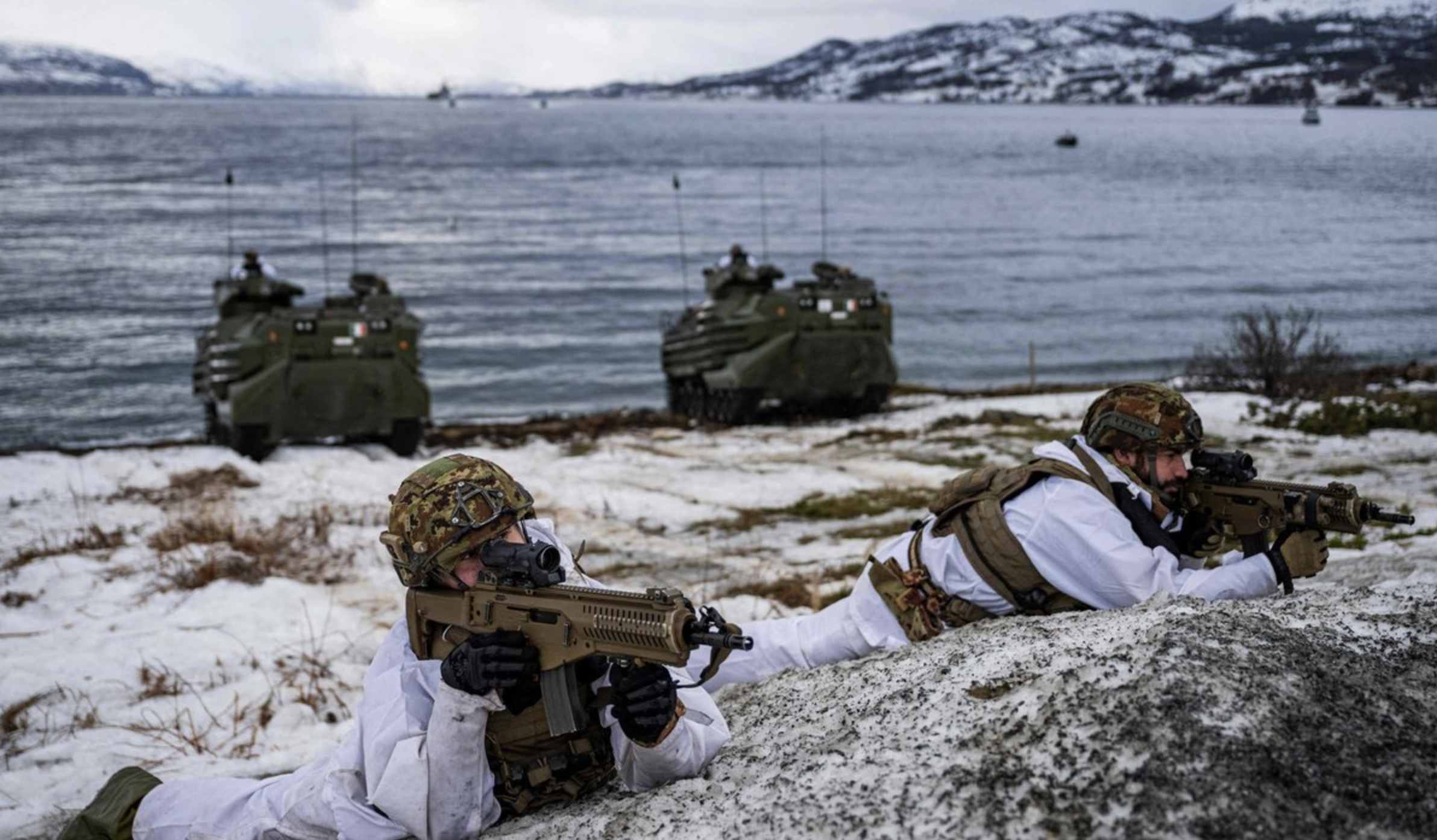
Sweden and Finland took part in large-scale exercises after joining NATO. Photo: AFP
The Finnish model is sometimes offered as an option for Ukraine's future. Could you elaborate on what it was and what it meant for your country?
In the Nordic countries, we talk of “the Nordic model”. This includes at least strong labor unions, strong social security, public services like education and health care for all, multi-party representative democracy and progressive taxation. It’s the social democratic mixed-economy model that the workers movement in Nordic countries managed to achieve after decades of struggle.
It’s also something we learned to take for granted, but which is being gradually dismantled by right-wing governments in Finland as well as in Scandinavia. Nowadays we therefore often find ourselves fighting a defensive battle against the right, trying to defend our old model, instead of fighting for radical socialist reforms.
The Nordic model is something that we are very proud of and for very good reasons. I find no reason why this model would not be something that Ukraine could and should also adopt. Actually, it should maybe not be called “the Nordic model”. It’s not something that has to do with our geography or culture. It’s something that workers managed to achieve here, and it’s something that Ukrainian workers could surely achieve as well.
This is something we will definitely note. But there is another Finnish model that usually comes up first in the discussions, that is so-called “Finlandization”. What was it, how does the left in Finland assess this period in their history, and whether it can really be considered as a credible solution one can offer to other lands?
Ah! I misunderstood.
We are not used to calling it the Finnish model, but Finlandization is a familiar term. In Finland our official policy towards the Soviet Union was called “the Paasikivi-Kekkonen doctrine”. This was a foreign policy doctrine of neutrality and friendship between both the eastern and the western blocs, which has been both praised as savvy political realism and critisized as capitulation and self-censorship. I think both viewpoints are present and considered partly valid among leftists today, decades after the Cold War ended.
It can be argued that neutrality was something that was necessary to guarantee our independence after the defeat against the Soviet Union in the Second World War. This said, I’m not sure how viable this doctrine would be for Ukraine in today's world. Even if we would imagine that the war ends with a defeat against Russia as Finland was defeated, Ukraine in 2024 is not the same as Finland in 1944. Of course there are similarities. Finland lost lots of territory in the east to Russia. These areas are Russian now, and will likely always be. Is this something that would be acceptable to Ukrainians, in regard to the areas that are now occupied by Russia?
I think this is something that only Ukrainians can decide, and I’m not sure how helpful outside meddling in this discussion can be. I don’t think Finnish people should ever try to argue that our war experiences from 80 years ago or foreign relations during the Cold War are something we could just export abroad as something other countries could implement. It is very important to learn from history. It’s also very important to realize that the world is very different now.
Footnotes
- ^ Public support for NATO membership in Finland shifted from 24% in Oct 2021 to 85% in Oct 2022.

